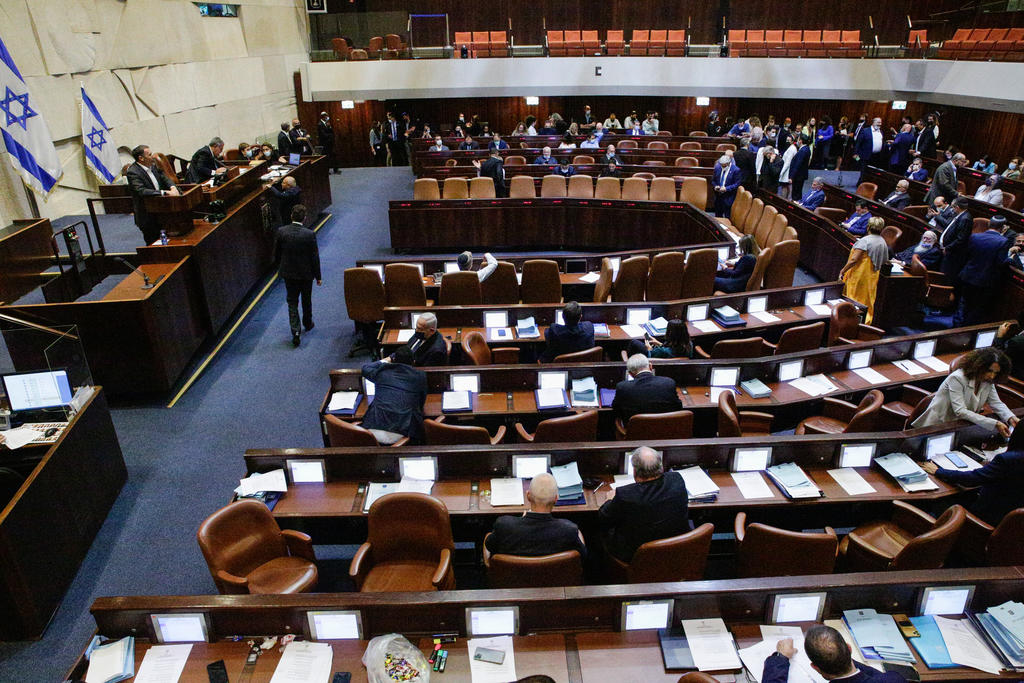Jerusalem, 8 February, 2022 (TPS) — The Citizenship and Entry Bill, proposed by the government, was approved by the Knesset’s plenum in its first reading on Monday in a rare collaboration of all the right-wing parties.
The government proposal won the support of 44 MKs against five opponents. The majority of the parties did not participate in the vote for various political reasons.
The proposal will be forwarded to the Knesset committee, which will decide which committee will prepare the bill for a second and third reading before becoming law.
The bill stipulates a temporary provision in which the Minister of the Interior will not be able to grant citizenship or a residence permit in Israel to an Arab resident of Judea, Samaria or Gaza, as well as to a citizen or resident of enemy states listed in the law. This is subject to various humanitarian exceptions listed in the proposal.
The bill enables the Minister to approve a resident’s application for a permit to prevent separation between a minor and his parents, and to prevent separation between an adult applicant and his children or spouse, provided certain conditions specified in the proposal are met.
The explanatory memorandum notes that “according to a recent opinion of the Shin Bet security service, the population of family reunification applicants from the Palestinian Authority and enemy countries still constitute an increased and proven risk population compared to family reunification seekers from other parts of the world,” meaning that Arabs given these permits occasionally utilize them to commit acts of terrorism against Israel.
“The main threat posed by these populations stems both from their being a convenient and accessible site for recruitment for terrorist organizations, and in view of the high potential inherent in them as individual terrorists. The background to the increased risk posed by this population stems from the population’s value and identity affinity with the Palestinian arena, its increased sensitivity to changes and events occurring in this arena, and its access to contact on the basis of family ties, along with the advantage of maintaining Israeli documentation and freedom of movement within Israel,” the bill explains.
Minister Matan Kahana presented the proposal on behalf of the government and said that “only recently we received a painful reminder of how important and relevant this law is. Following the recent violent incidents in the Negev that erupted after the JNF planting operation, we were exposed to a chilling figure: 38% of the detainees are descendants of Palestinians living in Israel by virtue of family reunification. According to the Shin Bet, this population has a decisive weight in the process of nationalist extremism that the Bedouin population is undergoing.”
MK Simcha Rothman pointed out that for the first time in the history of the State of Israel there are factions in the coalition that say openly that they want family reunions “that are a quiet or noisy realization of the non-existent Palestinian right to return to the State of Israel.”
The left-wing and Arab parties decried the bill as “racist.”
Minister Yoaz Handel said in conclusion that “a state that allows the entry of subjects of an enemy entity, and avoids the passage of this important law [that blocks their entry] – extends its neck to slaughter. According to the Shin Bet data, from 2001 to July 2021, 165 Palestinians who were granted status in Israel by virtue of family reunification, or children of Palestinians who were granted status by virtue of this procedure, were involved in terrorist attacks.”
Israel “has the right and even the duty to defend itself and preserve its identity,” he underscored.
